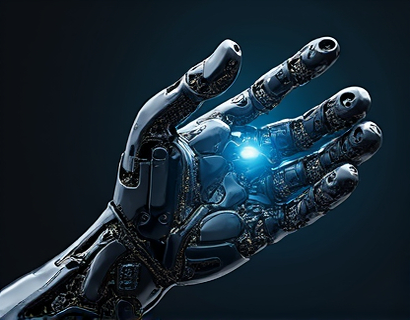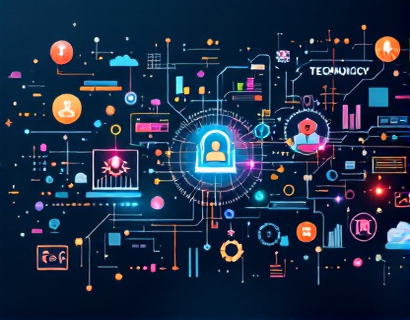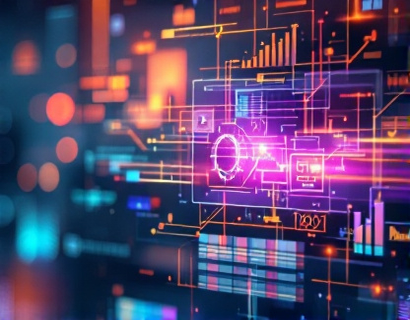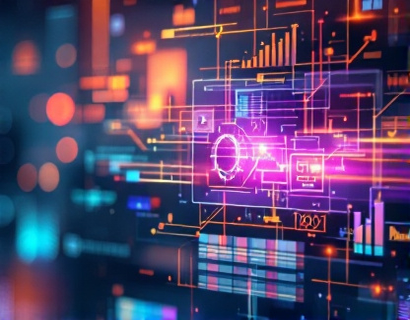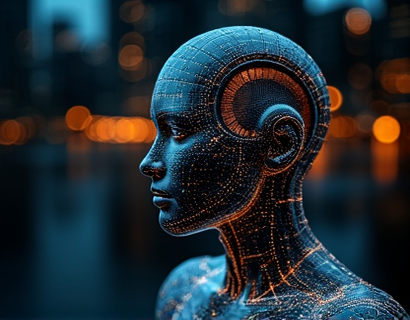Crypto and AI: Pioneering the Next Generation of Digital Services
The intersection of cryptocurrency and artificial intelligence (AI) is giving rise to a new era of digital services, transforming how we interact with technology and each other. This fusion of technologies is not just an evolution but a revolution, offering unprecedented opportunities for innovation and efficiency. As we delve into this topic, it's essential to understand the foundational elements that are driving this transformation.
Understanding Cryptocurrency
Cryptocurrency, often referred to as digital or virtual currency, uses cryptography for security and operates on a decentralized network known as a blockchain. This technology ensures transparency, immutability, and security, making it an attractive alternative to traditional financial systems. The most well-known cryptocurrency, Bitcoin, was launched in 2009 by an unknown entity using the pseudonym Satoshi Nakamoto. Since then, thousands of other cryptocurrencies have emerged, each with unique features and use cases.
One of the key advantages of cryptocurrency is its ability to facilitate peer-to-peer transactions without the need for intermediaries such as banks. This not only reduces transaction costs but also increases the speed and accessibility of financial services. The decentralized nature of cryptocurrencies also means that they are less susceptible to government control and manipulation, providing a level of financial freedom and privacy that is unparalleled in traditional systems.
The Role of Artificial Intelligence
Artificial intelligence, on the other hand, refers to the simulation of human intelligence processes by machines, particularly computer systems. These processes include learning (the acquisition of information and rules for using it), reasoning (using rules to reach approximate or definite conclusions), and self-correction. AI technologies such as machine learning, natural language processing, and computer vision are rapidly advancing, finding applications in various sectors from healthcare to finance.
In the context of digital services, AI plays a crucial role in enhancing user experiences, optimizing operations, and creating intelligent systems that can learn from data and improve over time. For instance, AI-driven chatbots provide 24/7 customer support, while predictive analytics help businesses make data-driven decisions. The integration of AI with other technologies like the Internet of Things (IoT) and 5G networks is further amplifying its potential.
Synergy Between Crypto and AI
The combination of cryptocurrency and AI is creating a synergy that is redefining digital services. This synergy leverages the strengths of both technologies to offer innovative solutions that were previously unimaginable. Here are some key areas where this convergence is making a significant impact:
- Smart Contracts and Decentralized Applications (DApps): Smart contracts are self-executing contracts with the terms of the agreement directly written into code. When combined with AI, these contracts can become more dynamic and intelligent, adapting to changing conditions and executing complex tasks autonomously. DApps built on this foundation can offer decentralized, trustless, and highly efficient services across various domains, from finance to supply chain management.
- Enhanced Security and Privacy: AI can significantly enhance the security of blockchain networks by detecting and mitigating threats in real-time. Machine learning algorithms can analyze patterns and identify anomalies that may indicate malicious activity. This proactive approach to security is crucial for maintaining the integrity of cryptocurrency transactions and protecting user data.
- Personalized User Experiences: AI-driven analytics can process vast amounts of user data to provide personalized recommendations and services. In the context of cryptocurrency, this means tailored investment advice, customized wallet interfaces, and personalized financial management tools. This level of personalization enhances user engagement and satisfaction, driving adoption and usage of digital services.
- Optimized Trading and Investment: The integration of AI with cryptocurrency trading platforms is revolutionizing the way trades are executed. AI algorithms can analyze market data, predict price movements, and execute trades at optimal times. This not only increases the efficiency of trading but also opens up new opportunities for algorithmic trading and automated investment strategies.
- Decentralized Finance (DeFi): DeFi platforms are leveraging both cryptocurrency and AI to create a new financial ecosystem that is open, transparent, and accessible to everyone. AI can enhance DeFi protocols by improving risk assessment, fraud detection, and credit scoring. This leads to more robust and reliable financial services that operate without traditional intermediaries.
Case Studies and Real-World Applications
To better understand the practical implications of crypto and AI synergy, let's explore some real-world applications and case studies:
One notable example is the use of AI in cryptocurrency trading bots. These bots use machine learning algorithms to analyze market trends and execute trades automatically. Platforms like Algorithmic Trading Bots have seen significant success by combining AI's predictive capabilities with the decentralized nature of cryptocurrencies. Users can set custom parameters and let the bot handle the trading, reducing the need for constant monitoring and increasing the potential for profits.
Another area where this synergy is making waves is in the development of AI-powered NFT (Non-Fungible Token) marketplaces. NFTs are unique digital assets that represent ownership of a specific item, such as art, music, or collectibles. AI can enhance the NFT market by creating unique, AI-generated art and providing personalized recommendations to collectors. This not only enriches the user experience but also drives the growth of the NFT market.
In the realm of decentralized identity management, AI and blockchain are coming together to create secure and user-controlled identity solutions. Projects like Self-Sovereign Identity (SSI) use blockchain to give individuals control over their personal data, while AI ensures the integrity and security of the system. This approach not only protects user privacy but also empowers individuals in the digital world.
Challenges and Considerations
While the potential of crypto and AI in digital services is immense, there are several challenges and considerations that need to be addressed:
First, regulatory uncertainty remains a significant hurdle. The decentralized and borderless nature of cryptocurrencies often clashes with traditional regulatory frameworks. As AI technologies evolve, regulators are still grappling with how to oversee and govern these innovations. Clear and consistent regulations are essential to foster trust and ensure the responsible development of these technologies.
Second, the technical complexity of integrating AI with blockchain systems can be daunting. Developers need a deep understanding of both domains to create robust and efficient solutions. This requires a skilled workforce and continuous investment in research and development. Educational initiatives and collaborative efforts between academia and industry can help bridge this gap.
Third, there are concerns about the environmental impact of cryptocurrency mining, particularly proof-of-work (PoW) blockchains. The energy consumption associated with mining can be substantial, raising sustainability issues. Transitioning to more energy-efficient consensus mechanisms like proof-of-stake (PoS) and integrating AI to optimize energy usage can mitigate these concerns.
Future Outlook
Looking ahead, the future of digital services powered by crypto and AI is bright and full of possibilities. As technology continues to advance, we can expect even more innovative applications and use cases:
1. Quantum Computing Integration: The emergence of quantum computing could revolutionize both cryptocurrency and AI. Quantum algorithms could solve complex problems that are currently infeasible, leading to breakthroughs in cryptography, optimization, and machine learning. This could result in more secure and efficient blockchain networks and AI systems.
2. Cross-Chain Interoperability: As more blockchain platforms emerge, the need for interoperability becomes crucial. AI can play a vital role in developing protocols that enable seamless communication and asset transfer between different blockchains, creating a more interconnected and efficient ecosystem.
3. Enhanced User Interfaces: AI-driven user interfaces will become more intuitive and personalized, making digital services more accessible to a broader audience. Voice-activated assistants, gesture-based interactions, and other innovative input methods will transform how users engage with cryptocurrency and AI-powered applications.
4. Financial Inclusion: The combination of cryptocurrency and AI has the potential to bring financial services to underserved populations. Decentralized financial platforms can provide banking solutions to those without access to traditional financial institutions, promoting financial inclusion and economic empowerment.
In conclusion, the convergence of cryptocurrency and AI is driving a new wave of innovation in digital services. By leveraging the strengths of both technologies, we can create more secure, efficient, and user-friendly solutions that redefine the digital landscape. As we continue to explore and harness this synergy, the possibilities for the future are endless.








